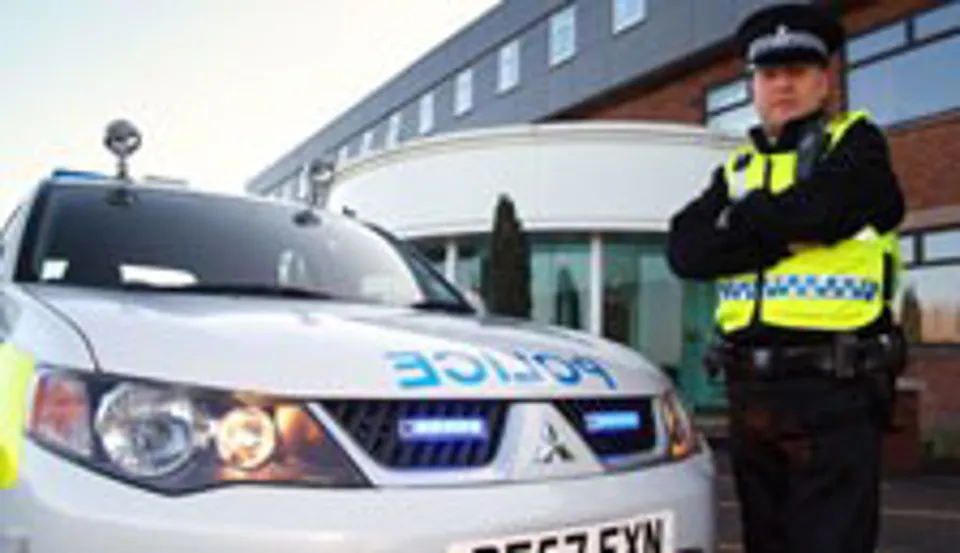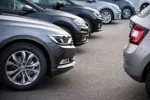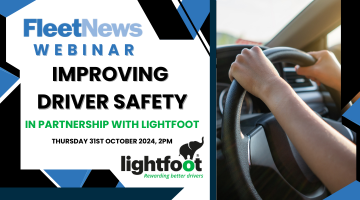There is a growing risk that fleet drivers will be targeted by fraudsters attempting to claim from their companies’ insurance policies for bogus crashes and injuries.
In the past 12 months, there has been a 30% rise in suspicious motor accident cases referred by insurance companies to Keoghs LLP, which investigates fraudulent claims on their behalf.
Fleets need to be concerned by the dramatic rise as fraudsters are typically targeting fleet vehicles.
“They are targeting vehicles that are most likely to guarantee that a claim will be paid,” said James Heath, Keoghs head of counter fraud strategy. “So they are likely to target commercial vehicles and new often larger cars.”
In what has become almost common practice, fraudsters brake sharply just after pulling onto a roundabout causing the car behind to crash into it.
While these ‘slam-on’ crashes account for the majority of the thousands of cases Keoghs is now investigating, there is also a growing problem of exaggerated claims where fraudsters say more passengers were in the car and were injured than was really the case. In the last three months there has been a 21% rise in such cases. There has also been a 27% rise in cases of fraudulent exaggeration where damage or injuries are exaggerated by fraudsters.
Not only are criminals increasingly causing staged crashes and exaggerating claims, they are also working in new areas.
Keoghs has found that motor insurance fraud is now affecting more of England’s most densely populated areas than ever before.
“Crash for cash fraud now affects all of the most heavily populated regions. Across the board, every major town and city has seen an increase in the number of suspicious claimants,” said Heath.
“When the insurance industry first started investigating insurance fraud over a decade ago the problem was associated with a few areas in the northwest of England. This is no longer the case.”
According to an annual study by Keoghs, the 10 worst affected areas - and 17 out of the top 20 - are located within the conurbations of Greater London, the West Midlands, Greater Manchester, West Yorkshire and Merseyside.
The worst affected is Birmingham, followed by Manchester, East London, Liverpool, Bradford, Oldham, Blackburn, North London, Bolton and Leeds.
“The insurance industry is improving fraud detection processes all the time, and as such new scams are uncovered on a daily basis,” said Heath.
“The advice to drivers is be vigilant and if you suspect that you may have been the victim, then tell your fleet management company and insurer immediately. Also get as many details as you can of the car, the driver, the passengers and the damage, but never put yourself at risk.”
The fleet views
Accidents caused by fraudsters looking to rip off insurance companies are becoming prevalent, according to some fleet managers.
Hilton Triesman says they are targeting vehicles they know to be insured, which puts company-branded vehicles at greater risk.
Tim Bailey adds: “They are using advanced tactics like two cars where one swerves in front of your car forcing you to break and cause an accident. You have to work with the insurance company to make sure as much information is provided as possible.”
Andrew Yeoman believes technology might provide a solution. In-cab cameras can monitor what’s happening in your car and the one in front.
“You can also get sensors that monitor your vehicle and all vehicles around – a black box can then play back the entire scene,” he says. “The technology exists.”
Triesman pointed out that drivers still have to accept some responsibility. “If you go into the back of someone, in law it’s your fault,” he says. “And that’s right – it means you were driving too close to the car in front and not being as careful as you should be.”
Regional highlights
Birmingham – Birmingham replaces Bradford as England and Wales’s number 1 motor fraud hotspot – with almost 10% of the suspicious claimants coming from the city.
Manchester – Manchester saw a 212% increase in the number of suspicious claimants investigated in 2009 – the largest increase of all the top 20 hotspots.
London – London’s combined postcode areas saw a 52% increase in suspicious claimants in 2009, with East and North London the worst affected areas.
Bolton – Bolton fell from 7th to 9th in the hotspots table despite seeing a 26% increase in suspect claimants. These claimants included associates of Mohammed Patel from Bolton who was jailed in October for four-and-a-half years for his role as ringleader in a crash-for-cash scam.
Leeds / Bradford – Whilst Bradford is no longer the top fraud ‘hotspot’ in the country, the number of suspicious claimants from the town still showed a 4% increase, whilst neighbouring Leeds shot into the top 10 with a 133% rise.
Cardiff –Cardiff is not amongst the 20 worst towns and cities in the country, but the city has seen over a 300% rise in suspicious claimants in the last 12 months, propelling it to 30th place in the list of ‘hotspots’.
Motor fraud hotspots - Position Region Change in position since 2009
1 Birmingham +1
2 Manchester +4
3 London (E) +7
4 Liverpool 0
5 Bradford -4
6 Oldham -1
7 Blackburn -4
8 London (N) +9
9 Bolton -2
10 Leeds +8
11 Southall -3
12 London (NW) +2
13 Huddersfield -4
14 Slough +10
15 Luton +7
16 Harrow -5
17 London (W) -1
18 Wakefield +3
19 Nottingham +4
20 Twickenham -5
Source: Keoghs
See Direct Line's top crash-for-cash top hotspots in the UK.



















Edward Handley - 27/04/2010 17:01
In cab cameras are certainly an excellent tool and a huge help as they will record the situation before a crash in considerable detail. Any camera is a help though, including camera phones, particularly if fleet drivers are well briefed on collision procedure and have been told to try to photograph the driver and any passengers. I have to disagree with the comment in the article that if you go into the back of someone, it is automatically your fault. There may be an assumption of fault, but no motorist is at liberty to behave in a random manner or in a way that puts others at risk, and sudden braking without a good reason for doing so is clearly putting others at risk. Anyone who deliberately causes a collision, or deliberately does something intended to adversely affect or even inconvenience another driver is commiting the offence of careless or inconsiderate driving. Drivers are often all too willing to automatically accept all the blame for a rear end shunt when in fact all or some of the blame can be laid at the door of a driver who behaved in an inconsiderate, random, unpredictable or reckless manner. It can be hard to prove, but it is not impossible.